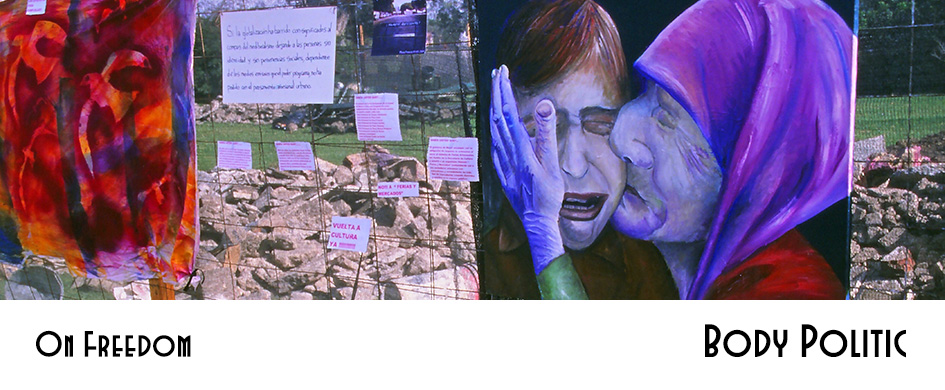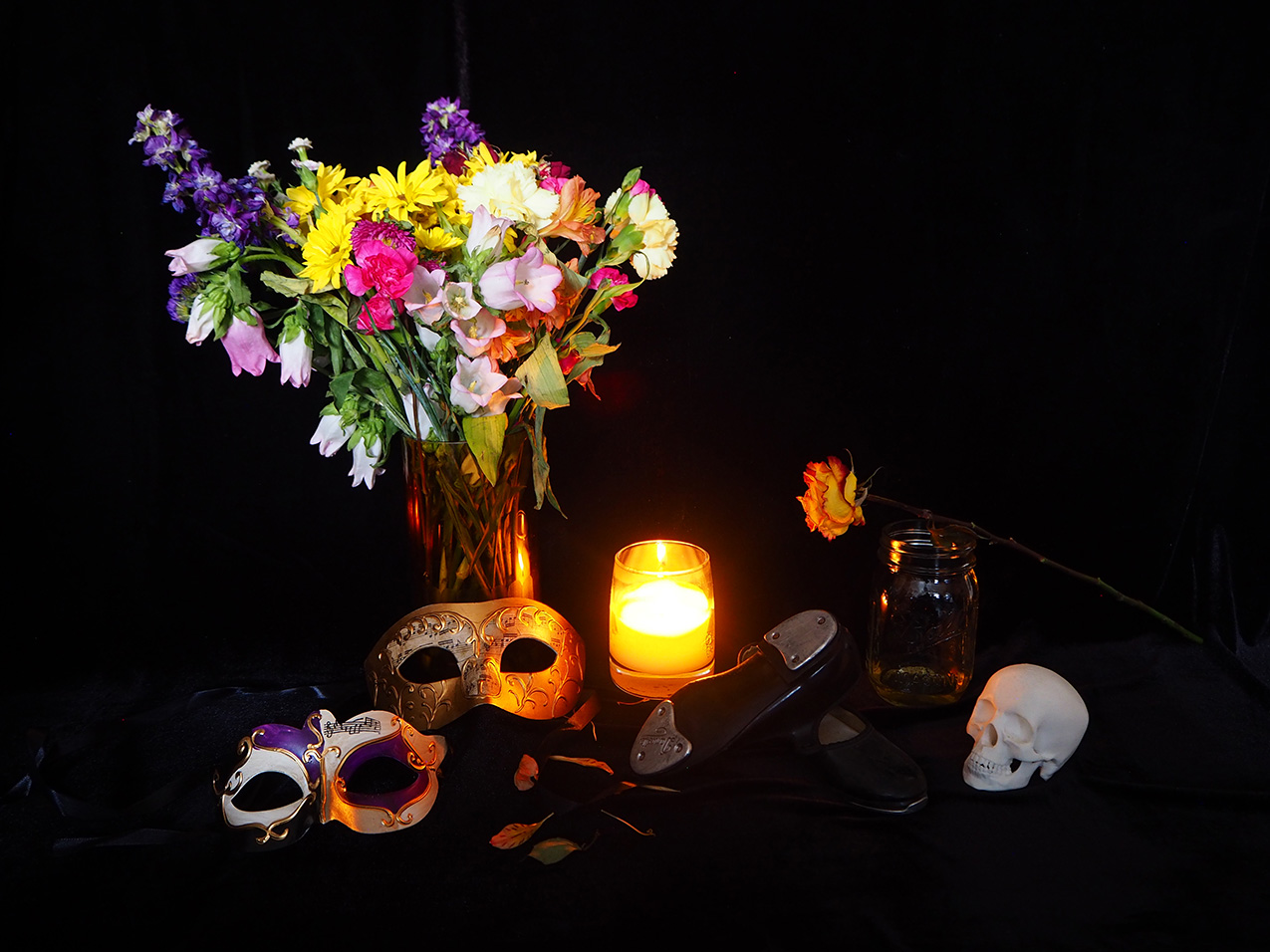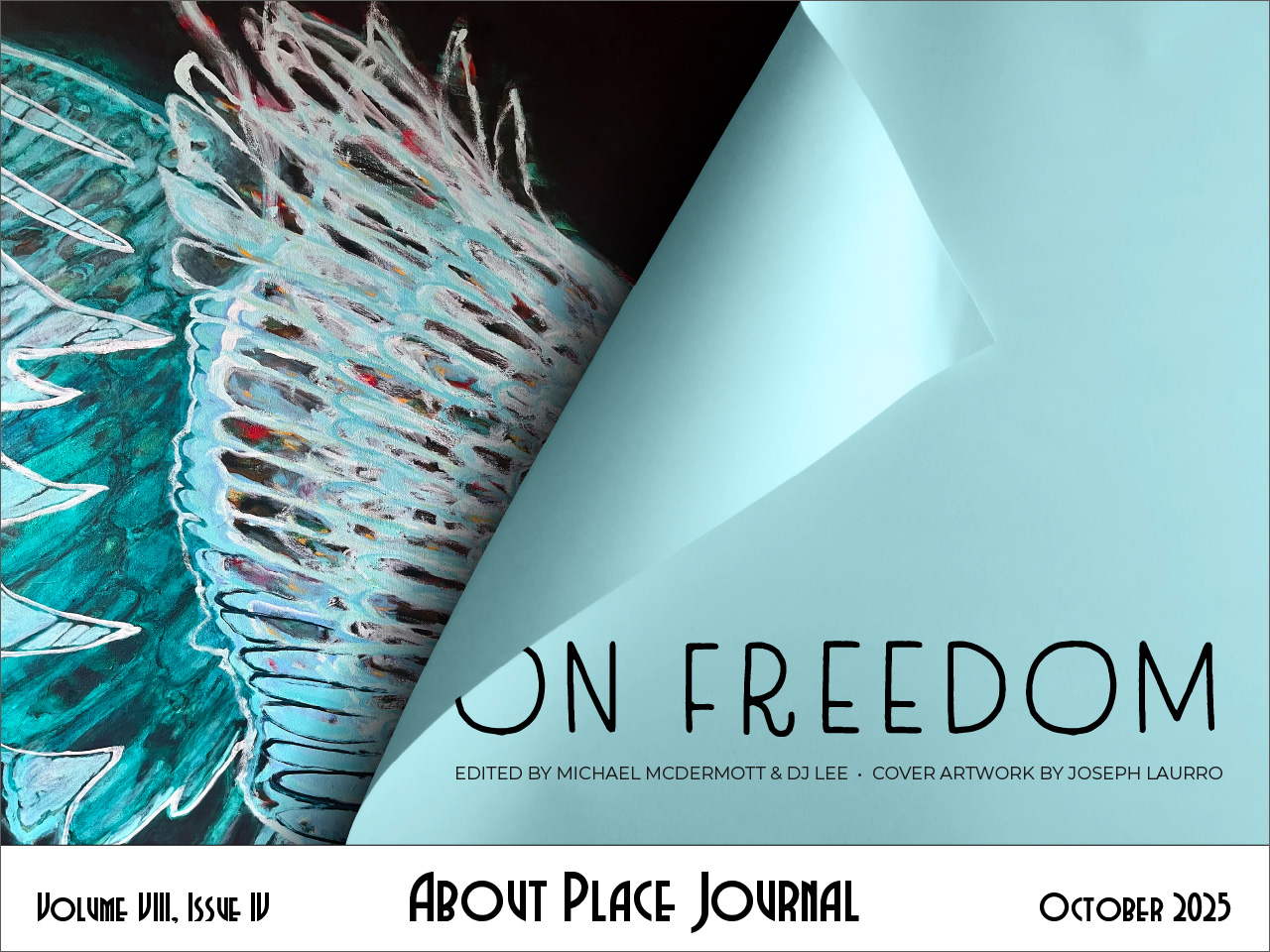Inspired by (1936) Federal Writers’ Project: Slave Narrative Project, Vol. 1, Alabama, Aarons-Young. 1936 to 1937. Retrieved from the Library of Congress, https://www.loc.gov/item/mesn010/.
Uncle Ant’ny’s Haints
She went down to Alabama
to ast Uncle Ant’ny Abecrombie “Bout slave’y time”
She went up the steps
An he done tole
Federal Writer Susie R. O’Brien
“No ma’am” I sho’ don’t
See too well
“but I knows you is white folks”
His birth year 100 years ago, he know cause
“Mistis put it down in de Bible”
Uncle Ant’ny tole bout the plantation ha’nt
“one mighty bad overseer”
And the other ha’nt
“Old Joe”
Who Marse Jim
“had to pull his gun and kill”
Uncle Ant’ny say he went to that same skirt of woods
“what I used to get my lightwood, what I use to start a fire”
To shake down persimmons from a tree
“Fore long I heared another tree shakin’”
Old Joe was shot right there by Marse Jim
“That’s Joe, ‘cause he likes ‘simmons too”
Uncle Ant’ny ran and ketch up if you can
Den another time houn’dog and Uncle Ant’ny was
“in de woods choppin’”
every time the ax go ‘whack’ on de lightwood knot he hear another whack ‘sides his
“houn’dog was crouchin’ at my feets, wid de hair standin’ up on his back”
They tore out for home likckety split and ran up to Marse Jim on the porch
“Marse Jim, he say dat ain’t nobody but Ole Joe. He owe you anythin?”
Ole Joe the ha’nt owe Uncle Ant’ny for helping shuck corn
“I don’t want him follerin’ roun’ atter’ me. When he do I can’t keep my mind on my business.”
Uncle Ant’ny say Ole Joe’s debt is forgiven
White Folks
Noted the numerous little colored children
That surrounded Jennie Bowen of Mobile on her porch
Mary chose to write:
“She answered my questions through a mouth void of teeth and with a constant blinking of her brown eyes with their muddy whites.”
Mary was not well versed in the dialect
Not well prepared for the inquiry
Not able to work with Jennie’s words
Mary chose to write:
“Her little grand-child had to act to some extent as an interpreter, as her speech was at times most indistinct.”
Mary asked Jennie
She was born in 1847
On the Fisher Plantation
Near Camden, Alabama
“Yasum, I remembers lots of things dat happened back in de days of de Cibil War.”
Jennie told Mary
“We useta have a mean oberseer, white folks, an’ all de time dere was slaves on our place a runnin’ away.”
Away from white folks
Jennie told Mary
“De Fishers was Prestterians an’ dey had dere own church on de place. Eve’ybody had to go on Sunday, de white folks sittin’ in de front, de colored folks in de back.”
Away from white folks
Jennie told Mary
“My pappy an’ mammy atter de war farmed on shares wid Capin Fisher. I was mai’ed ’bout dis time, white folks, to Sam Bowen, who long been daid.”
Jennie and Sam was married by white folks
Jennie told Mary
“Us had a big weddin’ an’ de two Mistis Fishers (Massa’s daughters) baked-us a cake an’ I sont a piece to all my white frien’s for dem to dream on. Atter I come to Mobile, I changed my ‘ligion to a Babtist.”
Mary thought something must have been wrong with Jennie’s cake
Baked by white folks
She sent cake pieces to white folks
She moved to Mobile
She changed her religion
Jennie told Mary
“Yassum, us had poiwhite trash back in dem days of de war. Dey lived near our place.”
Mary waited for her to say white folks
“Dey worked deyseif in de fielis. Us didn’t fool ‘long wid dem kinds of people dough white folks.
There it was
Jennie told Mary
“Us kept mostly to ourselves.”
Mary A. Poole was white folks
The Water Boy
She was watchin’ Uncle Tom whittle shavings off a piece of soft white pine
Federal Writer Susie R. O’Brien
Uncle Tom recollected
“Bout de slabery days… I remembers a story bout sompin dat happen to me a way back dar.”
White pine whittled down, she waited
“I was a water boy for fifty fiel’ han’s dat worked in de sun all day long”
He carried buckets from the shaded willow tree spring when they called out
“Water boy, bring that bucket.”
He put his bare belly on the cool moss and his head under the spring to get cool
“I knowed it I done fell slap to sleep”
When he woke it was almost dark.
“I couldn’t hear de slaves a-singin’ so I knowed dat dey had gone home.”
He shook his head and looked about.
“My eyes came to res’ on a little black bear cub a-drinkin’ outen de spring.”
Uncle Tom was ‘bout ten years old and didn’t have no sense
“It so was a cute little booger.”
He sho’ wanted dat little bear.
“I made up my mind right den to try ant kotch him.”
That baby bear was a-squealin’ in his hands when he heard some rustling in the bushes
“I drop dat little critter caze I knowed dat was his mammy an’ she was ravin’ mad.”
Tom ran and whooped for help and seen big Jim a-comin’ through a row of corn
“She made for me like two bolts of lightning.”
The bear slapped Tom and he drawed his body up in a knot.
“My back felt like somebody done put a hot iron on it.”
Jim wrapped his legs roun’ dat bear and stuck it a dozen times wid a knife.
“I was all tore up an’ Jim he looked like he done mess up wid a fambly of wildcats.”
They made it back to de big house to git some treatments an’ medicine for their hurts
“The Mistis was a-standin’ dere, whe she seed me an’ Jim, she almost faint.”
They got fixed up and Uncle Tom was jus’ as happy
“I done seed de bes’ fight dere eber was an’ I had me a little orphan bear cub.”



